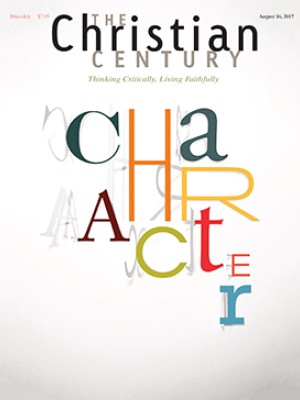Metal detectors at Jerusalem Temple Mount cause clashes
Thousands of Muslims prayed in alleys and streets rather than inside Al-Aqsa Mosque. Then police used force against demonstrators.
Amid ten days of violence around Jerusalem’s Temple Mount, Israel installed metal detectors and cameras at al-Aqsa Mosque on the mount, then reversed course on July 24.
Israel had erected metal detectors and cameras at entrances to the mosque in response to an incident July 14 in which three armed Arab residents of Israel fatally shot two Israeli police officers guarding the mosque. More deaths followed as three Israelis were stabbed to death in the West Bank, four Palestinians were killed in East Jerusalem, and a Jordanian worker stabbed an Israeli embassy worker.
On July 21, tens of thousands of Muslims heeded calls from their religious leaders to avoid prayers at the al-Aqsa Mosque in Jerusalem in protest of security measures. Only several hundred worshipers prayed inside the mosque at Friday midday prayers on July 21, according to Israel Police spokesman Micky Rosenfeld. More than 50,000 pray there on a typical Friday.
Read our latest issue or browse back issues.
Instead, thousands of Muslim men and women clogged the narrow alleyways of the Old City’s Muslim Quarter and the streets outside the Old City and prayed under the hot sun on prayer rugs they placed on the ground. More than 3,000 Israeli police were deployed in the Muslim Quarter.
Following the prayers, hundreds of Muslims demonstrated against the security measures. Some young men and boys threw rocks at the Israeli security personnel fanned out across the Old City and elsewhere in Jerusalem or set fire to rubber tires and trash cans. In addition to several deaths, more than 200 people were injured, according to Israeli and Palestinian reports.
Muslims saw the metal detectors as an Israeli attempt to impose sovereignty over the site known to Jews as the Temple Mount and to Muslims as the Noble Sanctuary, or Haram al-Sharif. The small hilltop is the holiest site in Judaism and third holiest in Islam after Mecca and Medina.
“It’s not an issue of security, it’s an issue of who controls the house of Allah,” said Khaled Moghrabi, a Muslim resident of the Muslim Quarter. “The Temple Mount is and must remain Muslim.”
When Israel captured East Jerusalem, including the mount, from Jordan in 1967, it took over security of the site but left its day-to-day running in the hands of the Wakf, a Jordanian Islamic authority. But Israel, which has soldiers stationed around the Temple Mount, effectively controls access to it. For example, after the attempted assassination in 2014 of a rabbi who wanted Jews to pray freely at the top of the Temple Mount, Israel closed the Temple Mount to men younger than 50.
Prime Minister Benjamin Netanyahu had tried to downplay the presence of the metal detectors, noting that every visitor to the Western Wall must go through one before entering the gated area. Israeli malls and government offices also have metal detectors.
“Israel is committed to preserving the status quo at the Temple Mount and free access to the holy sites,” a statement from Netanyahu’s office said.
[An open letter from heads of churches in Jerusalem and the surrounding area, including Catholic, Episcopal, Lutheran, and Orthodox leaders, expressed support for the historical arrangement that “guarantees the right for all Muslims to free access and worship to al-Aqsa Mosque.” The World Council of Churches echoed that concern. “Supporting equal rights for Christians, Muslims, and Jews at these holy sites is vitally important to maintaining peace and de-escalating violence,” said Father Ioan Sauca, WCC acting general secretary.]
In his souvenir shop on the outskirts of the Old City’s Jewish Quarter, Danny Hadad, a Muslim, asked how Jews and Christians would feel “if someone stood in their way of entering their synagogue or church. Would you be happy?”
He rejected claims that Jews face the same constraints when they go through security at the Western Wall’s entrance. “My hope is that we’ll have peace, shalom, and that we’ll be able to pray at al-Aqsa unimpeded.”
Anat Mizrachi, a Jewish Israeli doing some shopping in the Jewish Quarter, insisted that security on the Temple Mount “will keep out both Muslim and Jewish extremists. Isn’t that in everybody’s best interest?” —Religion News Service; with information added from other reports
A version of this article, which was edited on July 31, appears in the August 16 print edition under the title “Clashes over security at Jerusalem Temple Mount.”






